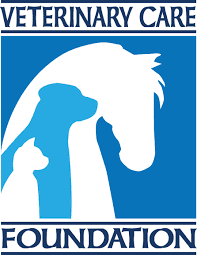Blood Donor FAQs
There are many situations that may warrant a blood transfusion in your pet due to anemia such as: trauma, surgical complications, cancer, ingestion of poisons, and immune mediated diseases.
IndyVet has dedicated and specialized collection technicians that make the donation procedure quick and painless. With the use of positive reinforcement and (if needed) a small amount of sedation, the pet is placed on their side and a small spot is shaved and cleaned for the donation. Although the donation itself takes only 10 minutes and is followed by cuddles and treats, we ask pet owners to allow about 45 minutes for the blood donation appointment. The red blood cells donated will be replenished by the body in 2-3 weeks.
e tailor the donation volume to the donor. Generally donors that weigh under 50 pounds will donate approximately 250mls (about 8 ounces), and dogs that weigh over 50 pounds donate 450mls (about 16 ounces).
Cats donate approximately 60mls of blood. That means your cat would donate about 4 tablespoons of blood every 8 weeks.
Each blood donor is different. The majority of blood donors at IndyVet require no sedation at the time of donation. However, there are rare occasions where an excitable dog may need a small amount of light sedation to keep them calm during donation. We perform all feline donations under light sedation. The IndyVet Blood Donation Center technicians are trained to closely monitor your pet while under sedation. The sedation lasts approximately 15-25 minutes.
At IndyVet we put patient care above all else, this holds true for our blood donor heroes. We like for our canine donors to donate once a month, with a commitment of at least 6 donations a year. Cats can donate every 8 weeks.
Schedule an appointment for a donor evaluation consultation with our Blood Donation Center by calling IndyVet at (317) 782-4484. This includes a behavioral analysis and physical examination. A small blood sample is drawn to check the blood type and health status. IndyVet does require that your pet be up to date on all vaccines including Rabies, DHPP, Bordetella, and Leptospirosis for dogs. Cats must be up to date on FVRCP and Rabies.
Once the physical examination and screening bloodwork has been passed your pet is accepted as a blood donor! Your pet must be treated with heartworm, flea, and tick preventatives year-round as long as they are a donor. We require annual physical examinations and blood work to be performed at your family veterinarian’s office. Each donor earns a stipend paid to your family veterinarian for this preventative care. After each six donations, donors will also receive a Blood Donor Reward Card that can be used at IndyVet for any service (emergency or specialty).
YES!
Research studies have identified up to 11 blood types in dogs! Dog blood types are determined based on the presence or absence of antigens (called Dog Erythrocyte Antigens or DEA). Antigens are little proteins that live on the surface of red blood cells and can react with other cells. However, in routine veterinary transfusion medicine, there are only four blood groups considered. These groups are 1, 4, 5, and 7. IndyVet tests our canine blood donor candidates for DEA 1, 4, 5 and 7. DEA 1 is the main blood antigen used for classification in dogs. A dog is classified as DEA 1 positive or negative. Almost all dogs (99.9%) are positive for DEA 4. For this reason, dogs that are positive for DEA 4 only (negative for all other antigens) are the closest thing to a universal donor that we have.
Cats have three different blood types: A, B, and AB. The majority of the cat population are type A. Type B can be found in about 5% of the population. There is no blood type in cats that is considered to be “universal.” If a cat is type AB it cannot be a donor, but can receive a transfusion of either A or B type blood.




